Background: The Political Killings Task Team and Its Mandate
In early 2024 the South African Police Service set up a specialised unit – the Political Killings Task Team – to investigate a surge of murders that appeared to be linked to political rivalries in KwaZulu‑Natal. The task team was given a clear brief: trace the perpetrators, gather forensic evidence, and present cases to prosecutors, aiming to break a cycle of impunity that had plagued the province for years.
Within months the unit compiled over a hundred active dockets, many involving high‑profile figures and alleged collusion between local politicians and criminal networks. Its work attracted both commendation from civil‑society watchdogs and unease from certain political circles that feared exposure.
- 121 dockets were opened covering incidents from 2018 to 2024.
- The team operated under the direct oversight of National Commissioner General Fannie Masemola.
- Funding and resources were initially earmarked by the national treasury, signalling strong political will.
Testimony Before the Madlanga Commission and Its Fallout
On 22 September 2025, during a televised hearing of the Madlanga Commission, Commissioner Masemola disclosed that he had been ordered by then‑Minister of Police Senzo Mchunu to dismantle the task team. He said Mchunu claimed that President Cyril Ramaphosa was behind the decision, a claim Masemola found unsettling.
Masemola explained that after receiving the directive, he raised concerns with the President, outlining the potential damage to ongoing investigations. According to his testimony, the President’s response was vague, leaving Masemola to interpret the instruction as tacit approval.
The commissioner also detailed the controversial relocation of 121 political‑killings dockets to Gauteng. He argued that moving the cases disrupted investigative continuity, required new forensic teams, and effectively stalled progress, raising suspicion that the transfer was meant to dilute focus on KwaZulu‑Natal’s political climate.
Earlier testimony from Lieutenant General Nhlanhla Mkhwanazi, KwaZulu‑Natal Provincial Police Commissioner, painted a similarly bleak picture. Mkhwanazi alleged a web of collusion involving senior politicians, prosecutors, and even intelligence operatives, all pushing to conceal politically sensitive murders.
The revelations have amplified calls for President Ramaphosa to appear before the commission. Legal analysts suggest that if the President is summoned, the inquiry could expand to examine whether constitutional provisions on the independence of the police were breached.
Since the commission’s launch in July 2025, chaired by Constitutional Court Justice Mbuyiseli Madlanga, five weeks of hearings have produced a trove of documents, text messages, and internal memos. Observers note that the investigation is still in its infancy, but the pressure on the current administration is already palpable.
Political parties across the spectrum have issued statements. The opposition Democratic Alliance demanded a full parliamentary inquiry, while the ruling African National Congress has defended the President, claiming the allegations are “politically motivated”. Meanwhile, civil‑society groups such as the South African Human Rights Commission have urged the commission to issue subpoenas for any officials who may have facilitated the disbandment.
As the Madlanga Commission continues its work, the South African public watches closely. The outcome could reshape how the police handle politically charged crimes and set a precedent for the accountability of senior officials in future investigations.
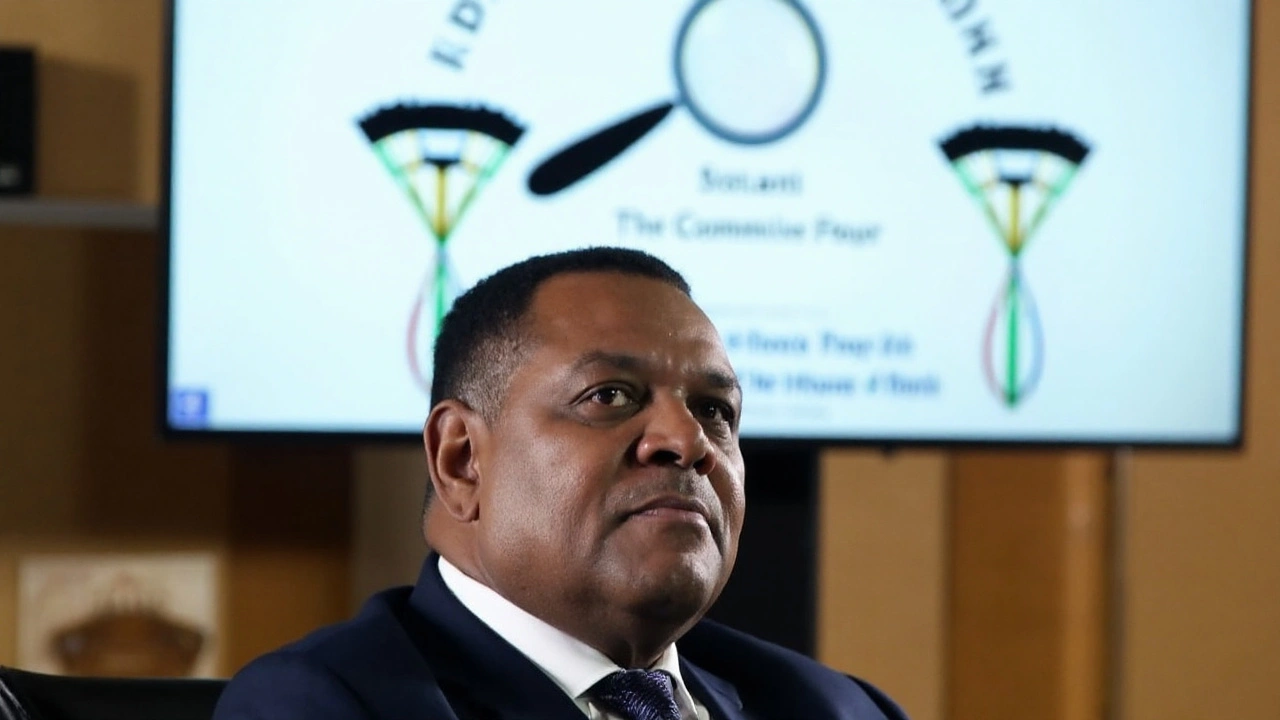
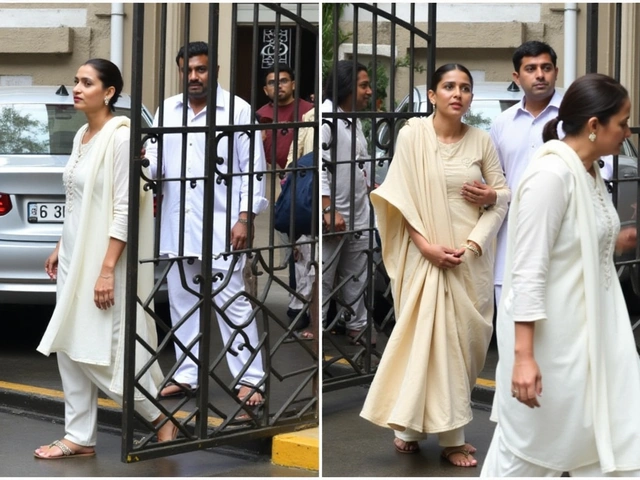
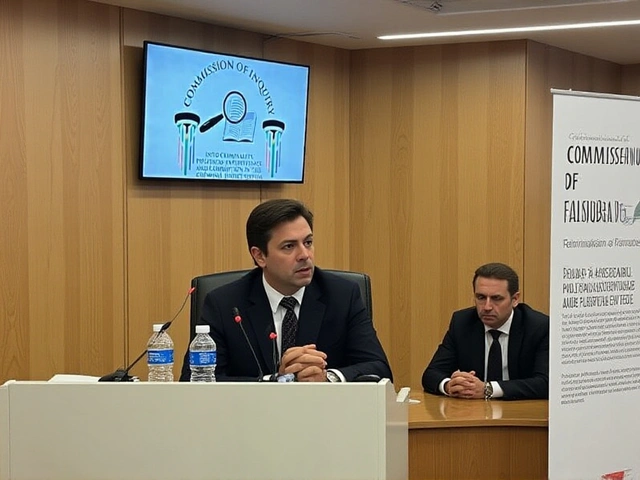
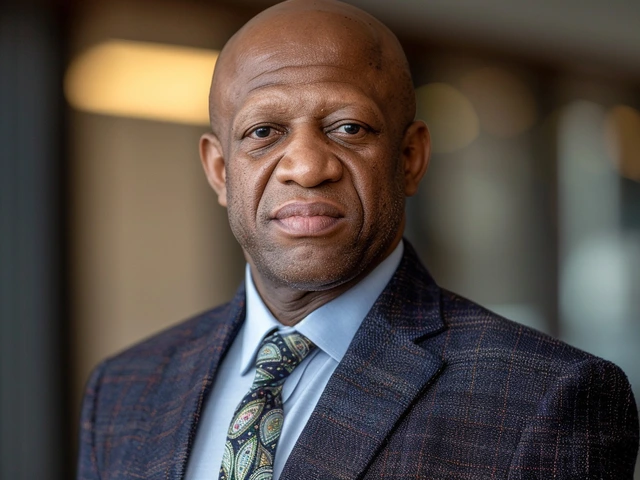
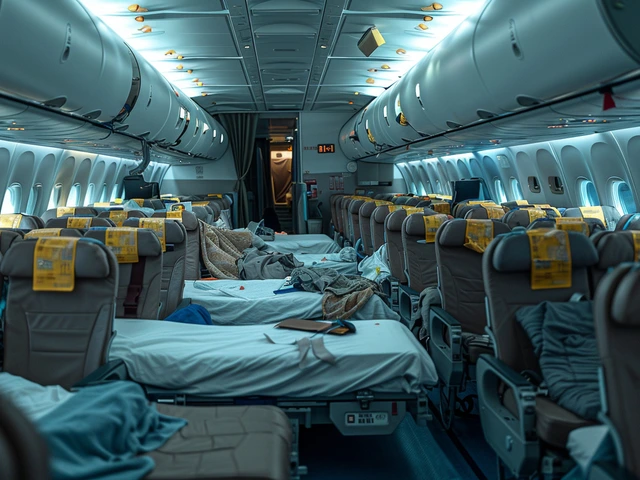
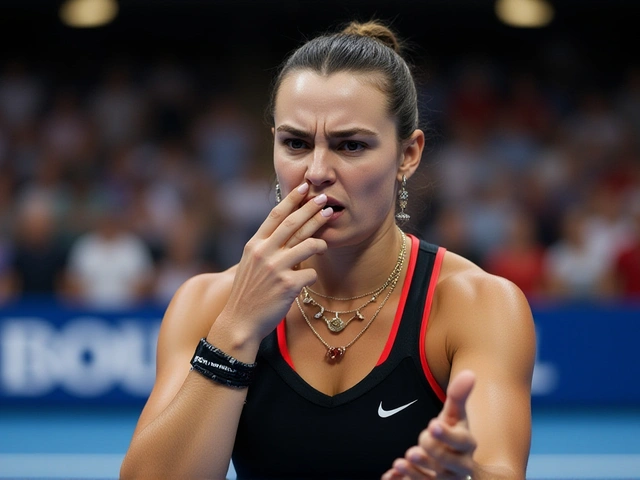
Prince Fajardo
September 25, 2025 AT 20:43Wow, so the police are apparently playing musical chairs with murder investigations-how refreshing! It's almost as if the whole thing is a reality TV plot designed to keep us on the edge of our seats.
Subhashree Das
September 25, 2025 AT 21:53The entire saga reads like a textbook case of institutional capture. The commission's testimony highlights a systematic effort to silence investigative units, essentially weaponising bureaucracy against accountability. One cannot ignore the pattern where high‑profile dockets are shuffled northward, fracturing continuity and allowing suspects to slip through the cracks. This is not merely bad governance; it is an orchestrated sabotage of justice that undermines public trust in the police and the state itself. The implications for the rule of law are profound, and any attempt to downplay this will only further erode credibility.
jitendra vishwakarma
September 25, 2025 AT 23:16i kinda see the big picture here but also think the media is making it sound more dramatic than it actually is.
maybe the move of dockets was just a logisitc decision not some grand scheme. still, teh fact that the commissioner felt pressured is kinda worrisome.
Ira Indeikina
September 26, 2025 AT 00:40When we contemplate the essence of authority, we must ask whether power is a tool for the collective good or a mirror reflecting our own ambitions. The disbanding of a task force dedicated to unveiling political bloodshed suggests a preference for opacity over illumination. It is a betrayal of the social contract that obliges the state to protect its citizens from the very forces it may secretly enable. Yet, we as a society hold the capacity to transform this betrayal into a catalyst for deeper vigilance and ethical resurgence.
Shashikiran R
September 26, 2025 AT 02:03It's absolutely unforgivable that officials would put personal politics ahead of innocent lives. This is a clear violation of moral duty and a stain on the very soul of our justice system. Such actions cannot be excused or brushed aside.
SURAJ ASHISH
September 26, 2025 AT 03:26another hollow statement from the elite who think they can hide behind paperwork
PARVINDER DHILLON
September 26, 2025 AT 04:50Let’s try to keep the conversation constructive 😊
We all want a transparent process, and that’s why it’s important to share facts and support each other.
Nilanjan Banerjee
September 26, 2025 AT 06:13In the annals of South African jurisprudence, we now stand at a precipice of moral reckoning, the weight of which is profound and inexorable. The Madlanga Commission, convened with the solemn promise of uncovering truth, has uncovered threads of a tapestry woven not merely with criminal acts but with the very fabric of political machination itself. The sheer volume of dockets-121, a staggering testament to the scale of bloodshed-underscores a reality that transcends isolated incidents and ventures into systemic atrocity. One cannot ignore the symbolism embedded in the relocation of these cases to Gauteng, a maneuver that, on its face, appears administrative but in practice disassembles investigative momentum, dilutes focus, and invites the insidious possibility of evidence erosion.
Consider the testimony of Commissioner Masemola, a man caught between the oath to protect and the edicts of political superiors. His admission of being ordered to disband the task team by Minister Mchunu, allegedly under presidential sanction, is not merely a procedural anecdote; it is an expose of how governance can be weaponised against its own protective mechanisms. The President’s ambiguous response, described as vague, further entrenches a narrative of tacit approval, a silence that speaks louder than any overt directive.
Moreover, Lieutenant General Nhlanhla Mkhwanazi’s harrowing account of collusion-spanning politicians, prosecutors, and intelligence operatives-paints a portrait of an ecosystem wherein murder becomes a tool, and justice a distant ideal. The commissions’ committees, tasked with sifting through troves of documents, texts, and memos, are now custodians of a collective conscience that demands accountability.
In evaluating the reactions across the political spectrum, one discerns a stark dichotomy: the Democratic Alliance’s call for parliamentary scrutiny stands as a beacon of democratic insistence, while the African National Congress’s defense of the President under the banner of “politically motivated” allegations reflects an entrenched defensive posture. The civil‑society sector, personified by the South African Human Rights Commission, underscores the urgency of subpoenas, highlighting the necessity for legal teeth to accompany moral outrage.
What emerges, therefore, is not merely a procedural inquiry but a crucible for the nation’s democratic integrity. The outcome of these hearings possesses the potential to redefine the relationship between law enforcement and political power, to either cement a precedent of impunity or to carve a path toward unwavering accountability. In this pivotal moment, the South African public watches, not merely as spectators, but as stakeholders in a future where the sanctity of life is upheld above partisan expediency.
sri surahno
September 26, 2025 AT 07:36The shadows cast by those in power are deeper than anyone admits. Every "official" statement is a layer of obfuscation, a deliberate attempt to hide the true extent of the conspiracy. It is evident that the very foundations of our institutions have been compromised by a cabal seeking to silence dissent through fear and murder.
Varun Kumar
September 26, 2025 AT 09:00The commission's findings are a direct attack on national integrity. We must protect our borders and prevent foreign meddling in internal affairs.
Madhu Murthi
September 26, 2025 AT 10:23It's obvious the state is trying to cover up the truth. We can't let them get away with it! 🇿🇦🚨
Amrinder Kahlon
September 26, 2025 AT 11:46Oh great, another police drama for us to binge‑watch.
Abhay patil
September 26, 2025 AT 13:10Friends, let’s channel our frustration into positive action. We can push for transparent hearings, support watchdogs, and keep the dialogue alive. Together we can safeguard our justice system and ensure that no one silences the truth.